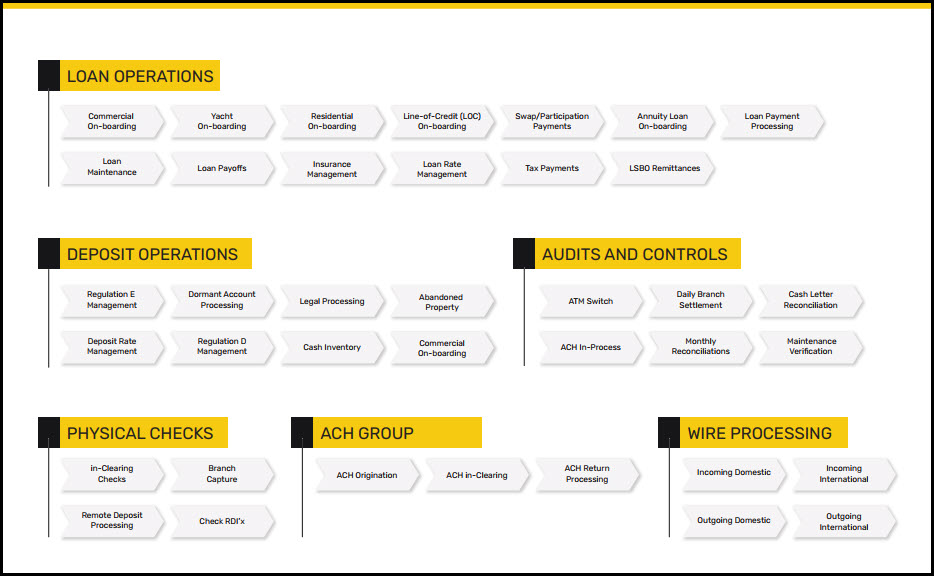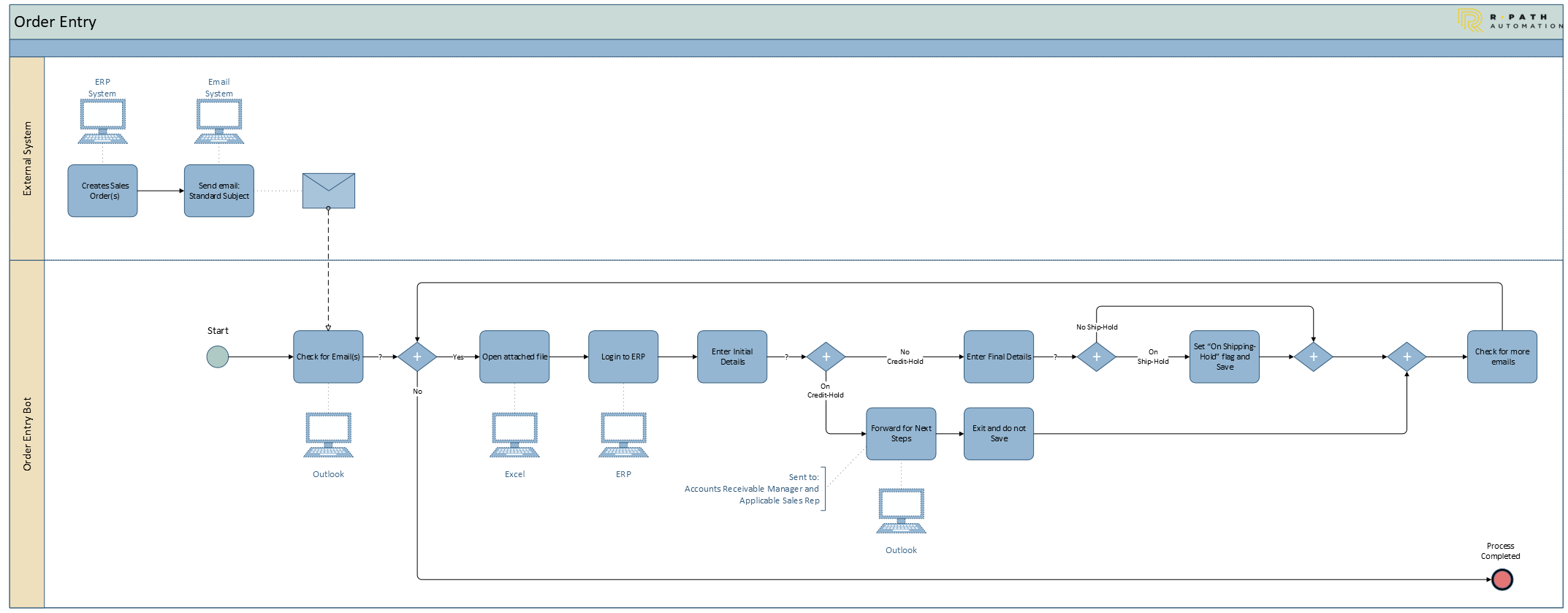In today's fast-paced and highly competitive business landscape, organizations are constantly seeking innovative ways to gain a competitive edge. One of the most promising solutions that has emerged is automation, specifically Robotic Process Automation (RPA). As businesses strive to streamline their operations, reduce costs, and enhance efficiency, the urgency to automate processes has never been greater. However, the key lies in choosing the right partner to navigate this transformative journey.
While traditional IT services firms have long been trusted for technology implementations, specialized RPA services consulting firms are now stepping into the spotlight, offering a unique set of advantages. In this article, we'll delve deeper into the advantages of partnering with an RPA services firm and explore why they are the preferred choice of businesses looking to create a sustainable and scalable automation capability for the future.
Defining RPA Services Firms and IT Services Firms
RPA Services Firm
An RPA services firm is a specialized company that focuses on providing services related to process automation. These firms possess in-depth expertise in RPA technology and its implementation and ongoing support. Their primary goal is to assist organizations in successfully deploying and optimizing RPA solutions to automate their business processes. With industry-specific knowledge, RPA services firms tailor their services to meet the unique needs of different sectors such as compliance requirements, regulations, and industry-specific challenges. They take a holistic approach to process automation – supporting their client organizations in yielding the highest possible return on their investment.
IT Services Firm
On the other hand, an IT consulting firm offers a broad range of professional advice and services related to information technology. An IT services or consulting firm is a professional organization that provides technology-related services and expertise to businesses. These firms specialize in various areas of information technology, including software development, infrastructure management, cybersecurity, data analysis, and more. They have expertise in various IT domains, however, their expertise in RPA may be limited compared to dedicated RPA service firms.
Advantages of RPA Services Firms
1. Specialized Expertise
RPA services firms possess a deep understanding of intelligent automation technology and how it can be implemented most effectively. They keep up to date with the latest RPA trends, tools, and best practices. Their specialized expertise allows them to navigate industry-specific challenges and provide tailored solutions that address the unique needs of each sector. For example, in the healthcare industry, an RPA services firm can optimize patient data entry processes or intake forms, improving accuracy and efficiency while ensuring compliance with relevant regulations. As industry trends such as the addition of artificial intelligence (AI) to RPA platforms emerge, RPA services firms have a personal stake in staying current and implementing innovative technologies.
2. Comprehensive Support
One of the key advantages of partnering with an RPA services firm is access to a comprehensive support system. Beyond just providing developers, these firms have multidisciplinary teams with expertise in different areas of RPA implementation, including:
 Solutions Architect: The solutions architect plays a crucial role in overseeing the project. They help define the structure of the RPA solution, ensuring it aligns with the organization's objectives. They provide end-to-end oversight throughout the development, implementation, and maintenance phases. The solutions architect also works closely with the client’s IT team to ensure alignment with internal procedures and permissions.
Solutions Architect: The solutions architect plays a crucial role in overseeing the project. They help define the structure of the RPA solution, ensuring it aligns with the organization's objectives. They provide end-to-end oversight throughout the development, implementation, and maintenance phases. The solutions architect also works closely with the client’s IT team to ensure alignment with internal procedures and permissions.
 Business Analyst: A business analyst takes charge of creating process definitions and maps used for automation. They possess deep knowledge of business processes and can identify and avoid roadblocks within existing processes, ensuring a smooth automation implementation.
Business Analyst: A business analyst takes charge of creating process definitions and maps used for automation. They possess deep knowledge of business processes and can identify and avoid roadblocks within existing processes, ensuring a smooth automation implementation.
 RPA Developer: An RPA developer is responsible for crafting and maintaining scripts that power automated processes. They continuously look for new opportunities to improve speed, performance, and scalability while ensuring seamless integration with existing IT infrastructure.
RPA Developer: An RPA developer is responsible for crafting and maintaining scripts that power automated processes. They continuously look for new opportunities to improve speed, performance, and scalability while ensuring seamless integration with existing IT infrastructure.
Each team member is focused on their specific role in supporting the automation program, ensuring businesses receive comprehensive and specialized assistance throughout the implementation journey.
3. Proven Methodologies and Frameworks
RPA services firms specialize in frameworks that deliver the most value possible to each RPA program. The most effective RPA services firms do more than just develop working automations; they guide organizations through a proven framework designed to maximize success. One example of a successful automation program framework includes the following steps:
- Establish program goals and determine criteria for success: Define clear objectives and key performance indicators (KPIs) for the automation initiative.
- Budget and expectations: Your RPA services support team can assist in determining the ideal budget to support your automation goals and help manage expectations regarding the costs and benefits of RPA implementation.
- Executive ownership: Assign executive ownership of the program's success to ensure accountability and support from top-level management at your organization.
- IT readiness: Assess your organization's IT infrastructure and capabilities to ensure readiness for RPA implementation.
- Mapping your value chain: The process of identifying the key processes and areas where automation can bring the most value to your organization. This exercise is guided by both the solutions architect and the business analyst supporting your team.

- Create department-specific process maps: Collaborate with different departments to map out their unique processes, identifying automation opportunities and potential bottlenecks. When guided by RPA and project management experts – this goes much more smoothly than when done alone.
- Establish governance guidelines and project priorities: Create guidelines for the governance of the automation program and prioritize projects based on their impact and feasibility.
- Choose your first project: Select the pilot automation project that helps you deliver a quick win and demonstrate the value of RPA to key stakeholders and top executives.
- Map the existing process: Your RPA services support team helps document the existing processes in detail to identify areas for not only automation but also potential areas of improvement.
By following this comprehensive framework, an RPA services firm ensures a strategic and successful automation implementation, setting your organization up for long-term success. As you can see, the automation script building itself is only one part of the process of creating an automation program. While an IT services firm may have similar exercises for IT service support, it is likely to be focused more broadly on the organization’s technology strategy, and not the impact of automation on the business.
4. Ability to Fully Integrate with Both IT & Business Teams
RPA services firms understand the importance of collaboration and can seamlessly integrate with existing IT and business teams. They bridge the gap between technical requirements and business goals, facilitating effective communication and alignment between different stakeholders. This collaboration ensures that RPA solutions are developed in line with business requirements and that the automation initiatives support broader organizational objectives.
5. Faster Time to Deliver Value
One of the primary benefits of partnering with an RPA services firm is the faster time-to-value. These firms leverage their expertise, proven methodologies, and specialized teams to accelerate the automation implementation process. Instead of starting from scratch, they bring pre-built automation components and templates, allowing businesses to get up and running quickly. By focusing on delivering value from the start, RPA services firms help organizations realize the benefits of automation sooner, resulting in a quicker return on investment.
6. Ability to Expand and Scale
RPA services firms not only focus on the initial implementation but also provide support for expanding and scaling automation efforts. They understand that automation is not a one-time project but a capability that should grow and evolve over time. These firms have the expertise to support businesses in scaling their RPA initiatives, ensuring that the automation program aligns with the organization's changing needs and goals. With their guidance, businesses can optimize and refine their automation processes, unlock additional efficiencies, and drive continuous improvement.
Conclusion
When considering RPA implementation, partnering with an RPA services firm offers several advantages over traditional IT services firms. RPA services firms bring specialized expertise, industry-specific knowledge, comprehensive support, proven methodologies, and a focus on innovation. These factors make them the ideal choice for businesses looking to create a sustainable automation capability for the future. By selecting the right partner, organizations can optimize their processes, improve efficiency, reduce costs, and unlock the full potential of RPA to stay competitive in the rapidly evolving digital landscape.


